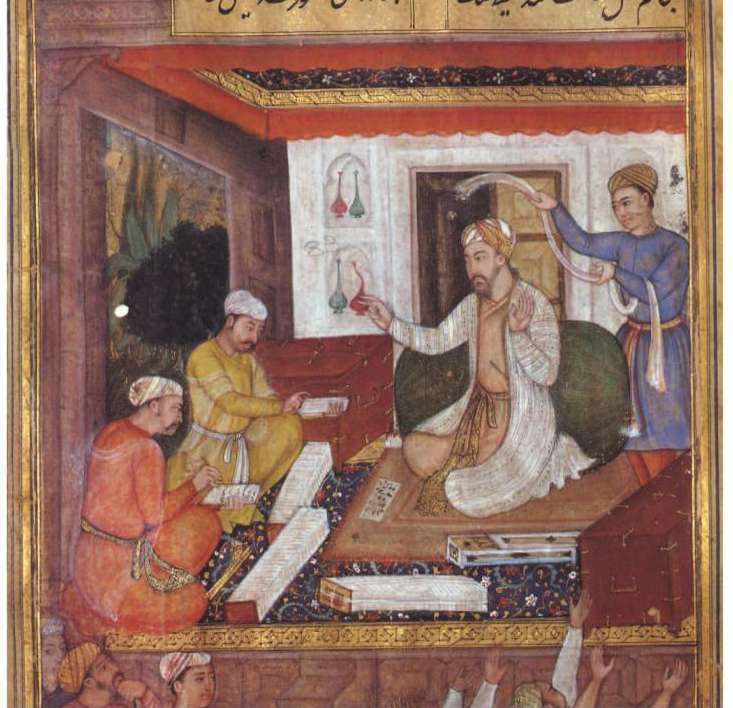FWP:
SETS
COMMERCE: {3,3}
GRANDIOSITY: {5,3}
MADNESS: {14,3}
Ghalib doesn't often use bureaucratic imagery, but when he does it's always witty and enjoyable. In this verse the lover imagines a bureaucratic context for the aftermath of his departure (into death). There is turmoil in the ranks of the civil service. No one is now fit to preside over the Ministry of Madness, and the airs and graces have all been dismissed from their posts, with prejudice. In short, the whole administrative apparatus of passion is in utter disarray, its work has all ground to a halt, since the lover has been gone. Without him, how can it function?
For more dead-lover-speaks verses, see {57,1}.
Note for grammar fans: Despite its ending, the ke
modifies someone [ko))ii] who is masculine singular
(because of rahaa ). It's that adverbial-looking non-agreeing
possession form, like us ke ek be;Taa hai . Notice that
Platts explains it especially as going with qaabil (see the definition above).

Nazm:
In this verse ke is for an i.zaafat , otherwise it would have been kaa. (51)
== Nazm page 51; Nazm page 52